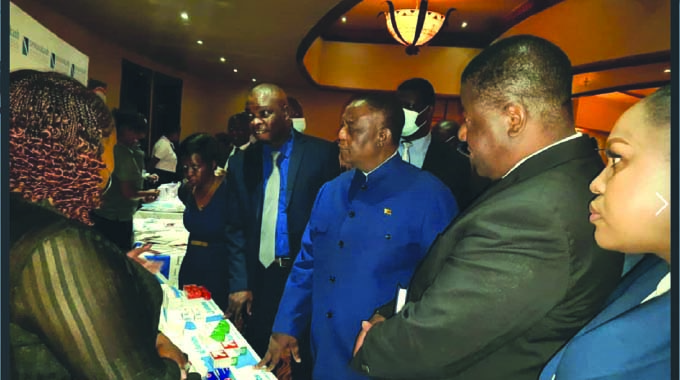14 CCC members’ bail bid rejected

Fidelis Munyoro Chief Court Reporter
The group of 14 CCC members, facing charges of assault, arson and looting after the violence that rocked Nyatsime area after Moreblessing Ali was kidnapped and murdered by a former boyfriend, have had their High Court bid for bail pending trial rejected because it was brought to the wrong court.
The 14 took their bid for bail on changed circumstances to the High Court, instead of the magistrates court that dealt with the initial bail application.
The ruling was made in the case of Precious Jeche, Misheck Guzha, Odias Makoma, Chauya Shopa, Zex Makoni, Roan Tsoka, Zephania Chinembiri, Shepherd Bulakasi, Tatenda Pindahama, Enock Tsoka, Emmanuel Muradzikwa, Robert Madzokere and Clever Sibanda.
They were all arrested in connection with the violence that occurred on June 14 in Nyatsime and are in custody on public violence charges.
Justice Lucy-Anne Mungwari threw out the application by the 14, which was brought on the basis of changed circumstances, finding that once an application for bail pending trial is made in the magistrates court, an application for bail on changed circumstances cannot be made before the High Court.
Given the nature of the application, the judge could not determine the application on the merits because the group’s legal counsel sought to experiment with a wrong procedure of circumventing the court best placed to deal with the matter.
“I am constrained to point out that the applicants’ biggest undoing is their desire to experiment with the unprecedented procedure they urged this court to adopt,” said Justice Mungwari.
“The finding of this court is that whilst it can entertain an application for bail on changed circumstances in a case where the initial application was before a judge of the High Court it has no power where the initial application was made in the magistrates’ court.
“As is the rule, where a court declines jurisdiction, it cannot take one step further than that,” said the judge advising the group to approach the magistrates court for the relief they seek.
“Their approach to the High Court was unprecedented as if they were dissatisfied win the lower court they would be appealing that ruling to the High Court.”
In her judgment, Justice Mungwari discredited the argument by the CCC activists that the group was being politically persecuted and that the judiciary was captured.
She was highly critical of the legal practitioner representing the group for setting down applications as an urgent matter and then not bothering to turn up in court and never explaining why, a ploy she said could have been intended to keep the matter undetermined.
“The background of this case illustrates a very disturbing trend which I need to comment on,” she said.
“Needless to point out, bail applications are by their nature urgent applications.
“The dilatoriness, lack of interest and sometimes laziness with which counsel for the applicants approached the matters smacked of a ploy to keep the matters undetermined.
“There is no excuse for a legal practitioner to apply for the set down of an urgent matter and then for no apparent reason fails to turn up at court, abandons the matter and leaves it to be struck off the roll.”
The bail court is a motion court where invariably scores of legal practitioners are ever present and serious legal practitioners who get tied up elsewhere and fail to attend court for one reason or another always find it useful to instruct another legal practitioner to stand in for them and seek a postponement of their cases to other dates.
In the cases of the CC activists group, Justice Mungwari said their legal counsel did not think that route was necessary and decided that the appropriate course was to ignore his applications and not bother to explain his failure to attend court.
“Had the right course of action been taken, the striking off and removal of the matters from the roll as well as the making of the subsequent applications for re-enrolment of the matters could have been avoided,” she said.
“Thereafter, a consolidation of the matters was sought, but again was not timeously attended to. In the first place, applications for bail are individual applications.”
The judge also noted that the charge was admittedly the same for all of the suspects but personal circumstances and bail statements were individualised.
This, she said, could have been dealt with individually by any judge before whom the matters would have been set down for hearing.
“So, whilst it may have been expedient for counsel it was not absolutely necessary that the cases be consolidated and the appeals be delayed to the hearing for months on end,” said Justice Mungwari.
“The inherent urgency with which bail matters should be attended to was lost in that confusion. I advert to the above indiscretions to debunk the conspiracy and political undertones such as those which appear in this application insinuating that the criminal justice system is being abused for political purposes.”
The suspects are alleged to be behind the burning of the house of the late Zanu PF chairperson for Nyatsime Cde George Murambatsvina.
They also allegedly stoned houses and broke window panes before going to Chibhanguza Shopping Centre, where they torched a gazebo, damaged windows of 13 shops, four beer halls and looted groceries and electrical gadgets.
It is alleged that they also assaulted people and damaged motor vehicles. Property worth $5 800 000 was destroyed in the process, according to the State.
The violence was triggered by social media and other false claims that Ms Ali had been kidnapped in a political action, rather than grabbed and murdered on the night of her disappearance by a former boyfriend who has since been arrested and has reportedly confessed.










Comments